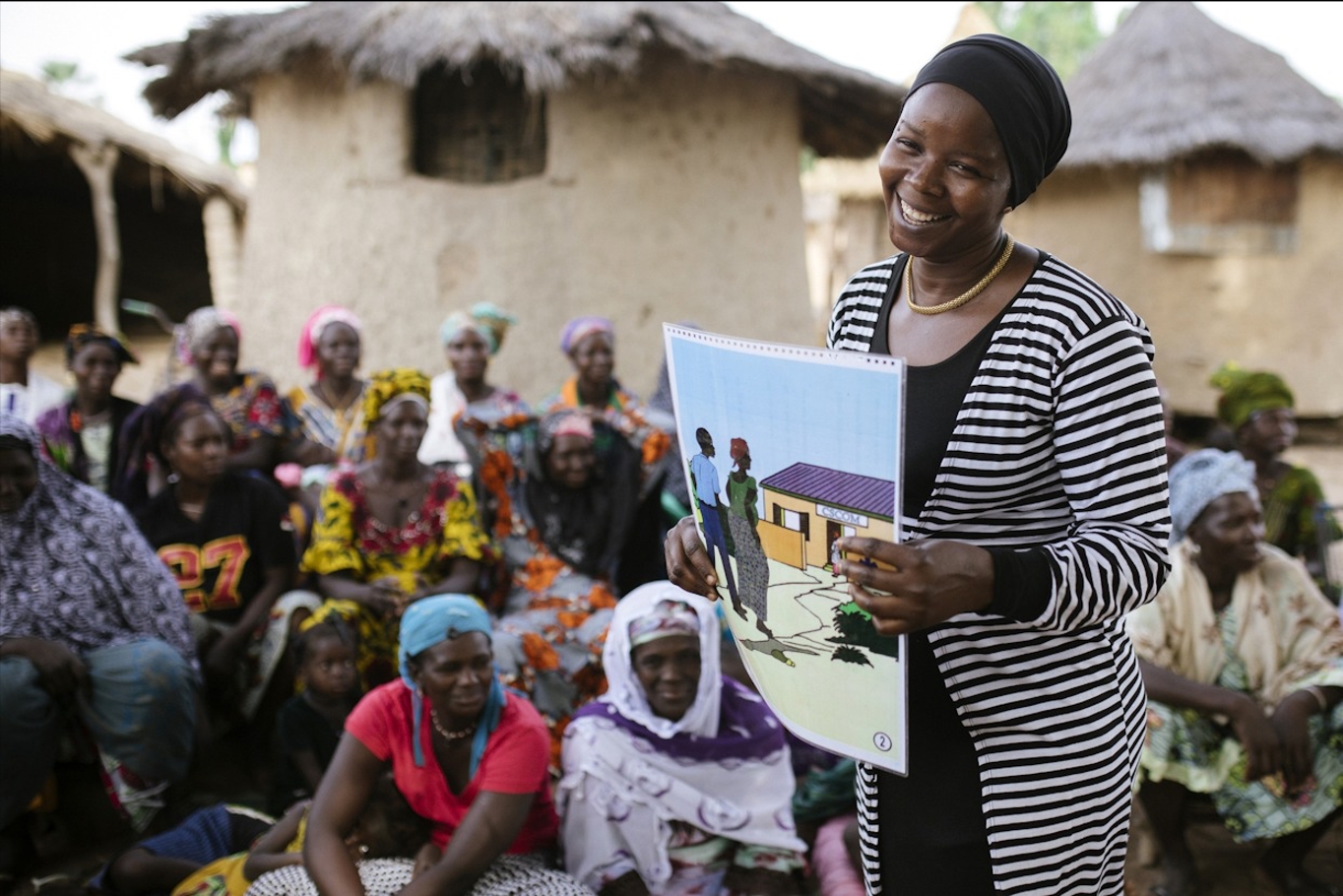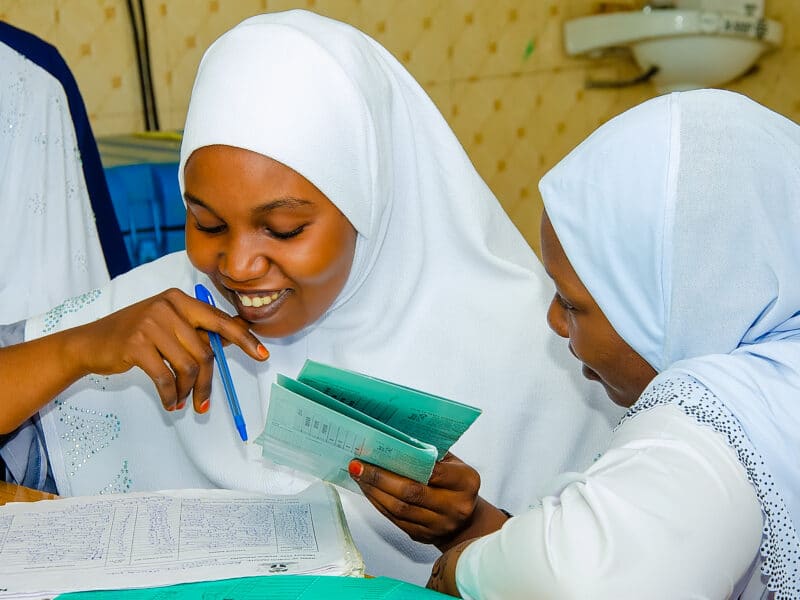Most studies of pre-term birth – the leading cause of infant mortality around the world – have focused on complications that occur in health facilities in the high-income countries. A unique new study conducted by the Johns Hopkins Center for Communication Programs looks at risk factors that start long before delivery in Ethiopia, Bangladesh and Mali.
The findings show that certain social norms – from child marriage to gender-based violence to women’s workloads around the house – account for a sizable percentage of the risk of being born too early, increasing their risk of birth complications and death. Babies that are born before 37 weeks of gestation are considered pre-term. Roughly 90 percent of pre-term births in the world occur in low- and middle-income countries, including many in sub-Saharan Africa and South Asia.
The findings provide a blueprint for creating interventions to change behaviors that are harmful to babies and their mothers.
“Pre-term birth is the leading cause of infant and under 5 mortality in every single country in the world, without exception,” says CCP’s Nandita Kapadia-Kundu, a senior researcher who was part of the team that conducted the study. “In fact, it has been increasing. These data give us a road map for how cultural factors play a role in causing pre-term births and how we can make a dent in preventing them.”
Adds Zoé Mistrale Hendrickson, who co-led the study: “There is an urgent need to think more holistically – and consider those things like gender inequality, or the household environment, or the health services and resources available in the community, that have real-life consequences for people’s health and well-being.”
The study was commissioned by the Born on Time project, led by a consortium including World Vision Canada, Plan International Canada and Save the Children Canada. The Born on Time project is a public-private partnership dedicated to reducing pre-term birth in Ethiopia, Bangladesh and Mali where, in total, about 847,000 pre-term deaths occur annually.
To conduct this research, CCP conducted interviews with 189 women, partners, adolescent girls and extended family in the three countries, led 81 focus groups and spoke to 84 health workers and community and religious leaders. They also conducted cross-sectional surveys with 2,686 women, 1,353 men and 2,702 adolescents in the countries.
In Ethiopia’s Orthodox Christian Amhara region, Kapadia-Kundu says, women – including pregnant women – fast for about 200 days a year, meaning they get less of the nutrition to deliver a healthy baby. Pregnant women who fast, she says, are at six times higher risk of pre-term birth births than those who eat on a regular basis. Interventions involving clergy would be key to reducing this risk, she says.
Heavy workloads are a major contributor to pre-term births in Ethiopia. Women are always tasked with cooking, caregiving, carrying water and heavy sacks of flour, all of which is considered “women’s work.” This work often continues well into the third trimester. Interventions that focus on bringing down barriers that prevent women from being able to reduce their workload during pregnancy are critical, Kapadia-Kundu says.
“In Ethiopia, women just work, work, work, no matter how far along they are in their pregnancies,” she says. “They just think it’s their lot in life.” But the researchers found that pregnant women who work the same or more during pregnancy than they might ordinarily, are 2.5 times more likely to experience a pre-term birth.
The same was true in Mali, where two-thirds of women reported no change in their usual workload during their most recent pregnancy. But in the face of ongoing work late into the third trimester, only 6 percent of women in Mali said their husbands helped out during pregnancy. “Engaging men and boys is critical to addressing women’s workload during pregnancy,” Hendrickson says.
Not all customs are harmful, Kapadia-Kundu says. There’s a concept in Ethiopia called “mitat,” which essentially means that when pregnant women work for long hours in the hot sun, a spirit can cause a disease that can lead to pre-term birth. While there’s no medical evidence for spirits, being forbidden from working long hours in the sun likely prevents some pre-term birth.
In Bangladesh, the CCP team found, gender-based violence appears to be a significant cause of pre-term birth. Researchers asked women about social norms around violence in their villages. The researchers found that women who live in a cluster where seven or more women out of 10 are beaten by their husbands – even while pregnant – are four times more likely to have a pre-term birth.
By identifying clusters where violence against women is the norm, Kapadia-Kundu says, interventions focused on changing those norms can be targeted.
Mobility restrictions also contribute to pre-term birth in Bangladesh. If a pregnant woman falls ill, she doesn’t seek medical care herself. Her husband goes to the doctor or pharmacist to get medicine because of the taboo on interacting with men and going out in public. “She’s actually denied care,” Kapadia-Kundu says.
The CCP team, meanwhile, found that in Mali, household stress was a contributor to pre-term births. In hierarchical households, pregnant women can be subject to demands from their spouses, their mothers-in-law or other family members, which causes significant tension.
Economic strain is also a significant concern. Both women and men in Mali worried a lot during their last pregnancy, Hendrickson says, with 68 percent of women and 78 percent of men said they worried a lot – that’s four or five times higher than in Bangladesh and Ethiopia. “Unpacking those sources of worry will go a long way to reducing stress during pregnancy,” Hendrickson says.
“These challenges are so ingrained that we need to have deep interventions to make a difference,” Kapadia-Kundu says. “We aren’t doing enough to prevent pre-term births. These data give us a good place to start.”





